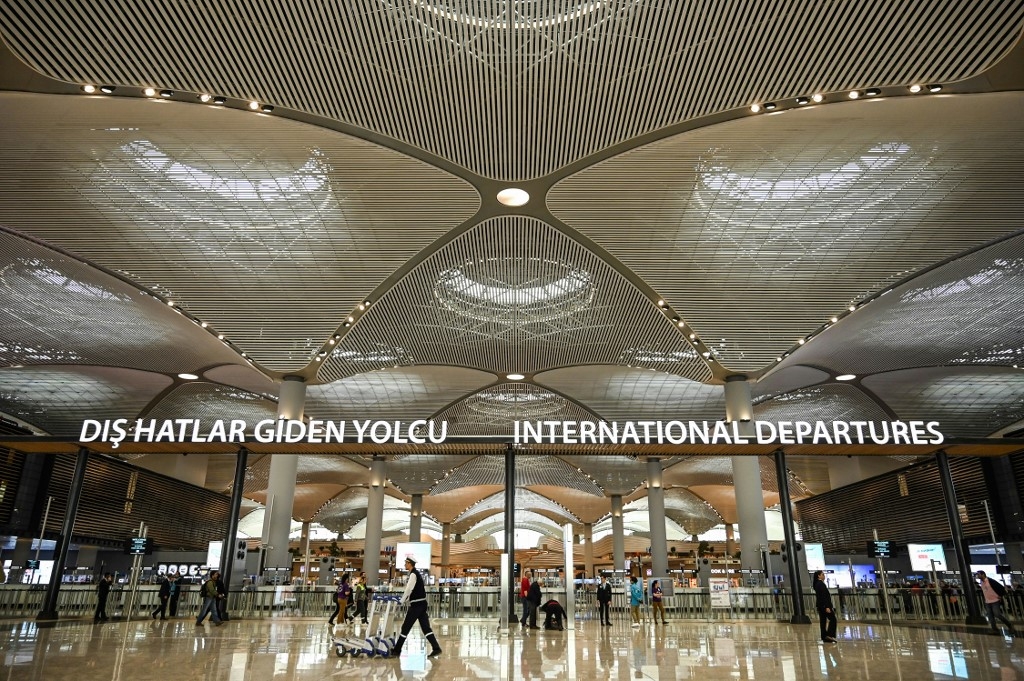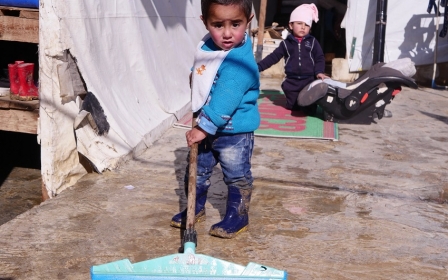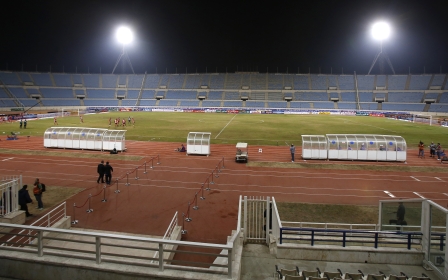Refugee stranded for weeks at Turkish airport fears 'imminent deportation': Amnesty

A Palestinian refugee from Syria has been stranded at Istanbul Airport in Turkey for more than six weeks and is "at risk of imminent deportation", Amnesty International reported.
Mohamed Ajlani Younes has been living in the airport with no access to adequate food, natural light or fresh air since 26 May, the rights group said in a statement on Monday.
"Mohamed has nowhere to sleep or bathe and has been surviving on cheese sandwiches, water and fruit juice, and the situation is adversely affecting his health," said Adriana Tidona, a migration researcher at Amnesty International, said in the statement.
"As thousands of passengers stream through Istanbul's new airport terminal, all Mohamed Ajlani Younes can do is watch and wait," she said.
'Mohamed has nowhere to sleep or bathe and has been surviving on cheese sandwiches, water and fruit juice, and the situation is adversely affecting his health'
- Adriana Tidona, Amnesty International
Younes fled the Syrian civil war in 2012, moving with his family to a Palestinian refugee camp in Lebanon.
New MEE newsletter: Jerusalem Dispatch
Sign up to get the latest insights and analysis on Israel-Palestine, alongside Turkey Unpacked and other MEE newsletters
He then left Lebanon out of fear that the government would send him back to Syria.
"He is at risk of imminent deportation to Lebanon which would put him in danger of being sent to Syria, where he would be at risk of serious human rights violations," said Tidona.
Younes was stopped at the airport and denied entry into Turkey for allegedly travelling with a fake passport, Amnesty said. He then applied for asylum.
Turkey's embassy in Washington did not immediately respond to Middle East Eye's request for comment on Monday.
The rights group said that while Younes's application for asylum in Turkey has yet to be ruled on and there is no deportation order against him, there have been two attempts to send him back to Lebanon.
Amnesty called on the Turkish authorities to immediately "allow [Younes] to enter Turkey and access the support to which he is entitled as an asylum seeker".
Anti-refugee sentiment
The report comes amid heightened anti-refugee sentiment in both Turkey and Lebanon, each of which hosts a large number of Syrian refugees.
Last month, Amnesty International detailed "escalating hostility" towards Syrian refugees in Lebanon in particular.
The group said that the Lebanese authorities have been arranging for refugees to return to Syria since July 2018.
While the Lebanese government has said the returns have been voluntary, Amnesty said that refugees are being "pushed back to Syria through a combination of restrictive government policies, dire humanitarian conditions and rampant discrimination".
Last month, around 700 Syrian refugees were forced to flee Deir al-Ahmar, a town in eastern Lebanon, following an altercation between some of the Syrians and Lebanon's Civil Defence.
The United Nations refugee agency (UNHCR) told local media that this was a form of "collective punishment", adding that some refugees were not allowed to return to their tents to pick up personal documents, medicine and other belongings.
In addition, some local governments in Lebanon have imposed curfews on Syrian refugees, claiming the measure would prevent altercations between them and their host communities, Lebanese newspaper The Daily Star reported.
Anti-refugee sentiment also recently ramped in Turkey, after an anti-Syrian riot broke out in Istanbul late last month as rumours spread that a Syrian refugee boy had verbally abused a 12-year-old girl.
According to UNHCR estimates, Turkey is home to about 3.6 million registered Syrian refugees, while just over 935,000 Syrian refugees are registered in Lebanon.
Middle East Eye delivers independent and unrivalled coverage and analysis of the Middle East, North Africa and beyond. To learn more about republishing this content and the associated fees, please fill out this form. More about MEE can be found here.





